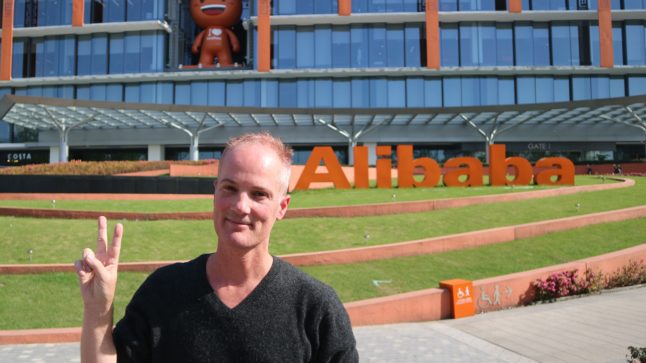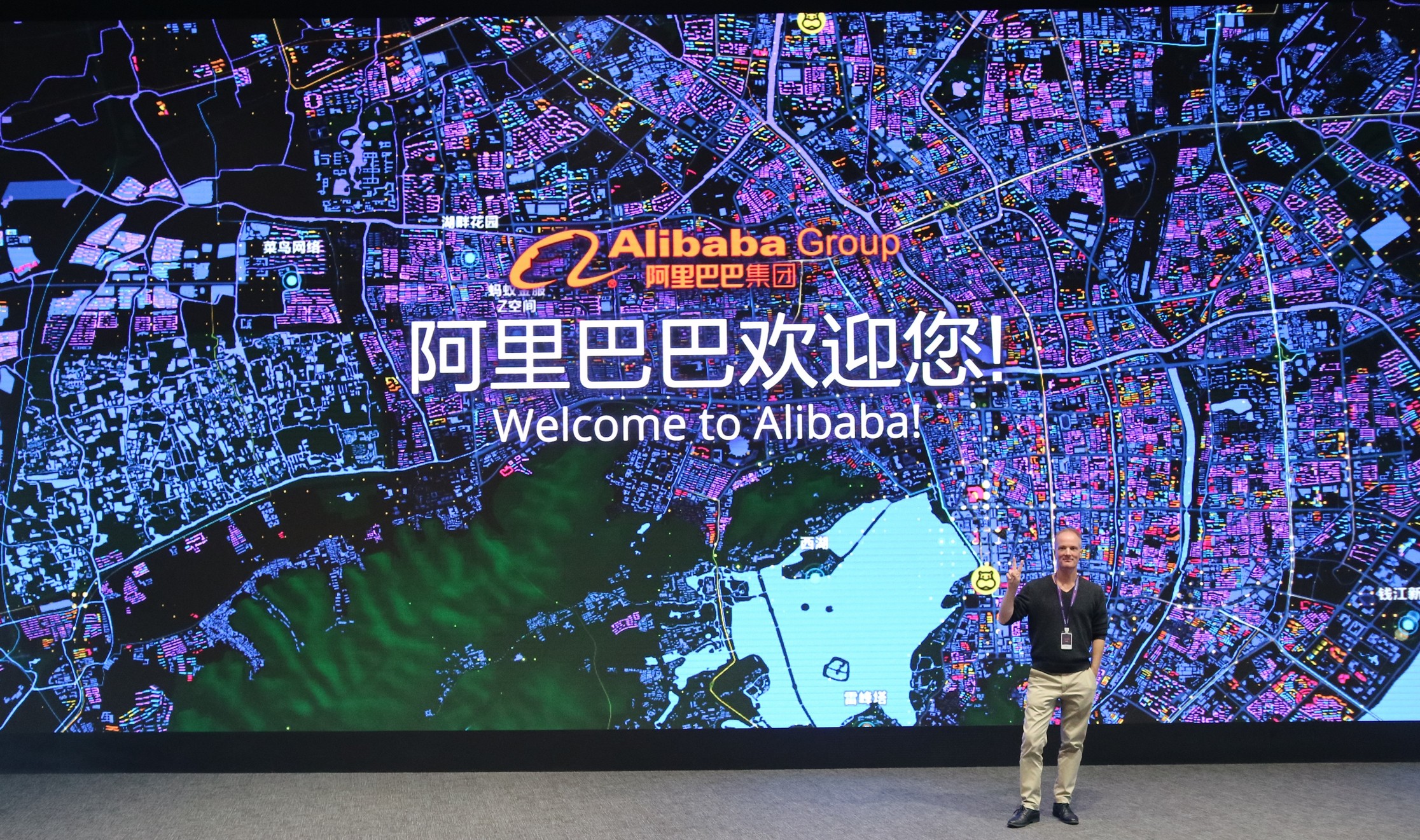I recently visited the Alibaba Global Leadership Academy (AGLA).
- In Part 1, I described my visit.
- In Part 2, I talked about the academy and some of its attendees (summary: it’s awesome).
- In this part, I have a few final thoughts on Hangzhou, AGLA and its executives. No big insights. Just some little stuff.
***
I grew up in California and spent the first part of my career in Manhattan. But as I focused more and more on international and digital strategy, I kept getting drawn to China. And frequently to Hangzhou, historically the epicenter of Chinese e-commerce. And whenever I am there, I just meet lots of fascinating people. All of whom have also found their way to Hangzhou. It’s strange. In the ancient world, all roads led to Rome. In the digital age, all the roads seem to lead to Hangzhou.
For example, there is David Clark, the VP of Global Human Resources at Alibaba. He is responsible for talent development across all of Alibaba’s International Business units. And he leads the Alibaba Global Leadership Academy (AGLA), developing new and current employees to be global leaders. So he is sitting right at the center of the questions I posed in Parts 1 and 2 on the AGLA.
- How do you take Alibaba’s unique culture international?
- What does a true Chinese multinational look like?
David is one of the key people trying to crack these questions.
During my visit, I had a nice talk with David as we toured the campus – and then later in a sit down with his boss Brian Wong (more on him in a second). But in his position in global human resources, David has a fascinating view into how you scale up a ridiculously fast-growing company, both domestically and internationally.
Alibaba’s key resource is people. It is a company that runs mostly on brainpower. So while Jack Ma talks about 50% of revenue coming from international sources in the next five years, it is worth remembering that this probably means hiring and training thousands of people across the globe. How do you do that quickly? How do you do that quickly while getting the best people? And also training them in Alibaba’s unique culture?
A bit about David:
- Prior to Alibaba, David spent 8 years at American Express, rising up the ranks and most recently serving as Senior VP for Human Resources and Chief Learning Officer. That second title of Chief Learning Officer seems pretty important in all this. And it’s definitely a cooler title than Professor.
- Prior to American Express, David was a Commissioned Officer in the White House and was Deputy Assistant to President Bush. He supported the President and his cabinet in recruiting and developing the middle and senior leaders for the US Government, including cabinet secretaries and heads of regulatory agencies.
- Prior to working in the White House, he previously led six successful Congressional campaigns.
During the tour, I also got to speak to Liyan Chan, a manager on Alibaba’s International Corporate Affairs team. Liyan is a Chinese native and an ex-Forbes staff writer. She works out of San Francisco and China (I think).
We first met back on Singles’ Day 11, 2017, when she gave my Global Influencer group a tour of the Hema supermarket. And unbeknownst to her, I had taken the below picture of her talking about how lobsters are sold in the Hema supermarkets. I have since used that photo in presentations on four continents. I estimate this photo has been seen by about +5,000 people in person and another +300,000 online. Which she probably didn’t know until reading the previous sentence.
After the tour, I also got to chat with Vice President Brian Wong, which was fascinating.
Brian grew up in Northern California in (or near?) Palo Alto. And after college, he went to work for Willie Brown, a legendary figure in California politics. As a California native, I can tell you there have been lots of politicians in California. But there has only been one Willie Brown. He was the iconoclast that stood out as just really unusual but also sort of great. The ultimate authentic politician. Plus he got the San Francisco stadium built, which is awesome. And working for Willie Brown around 2000 is how Brian entered the Alibaba story.
A bit on Alibaba’s history.
Launched in 1999, Alibaba was originally little more than an idea and a charismatic founder. And while the history is that Jack Ma was one of the founders of the Chinese Internet, this is not exactly true.
He did launch China Yellow Pages in 1995, which helped companies create websites. However, between 1998-1999, Jack somewhat disappeared from the Internet scene. He had a government-type job under the Ministry of Foreign Trade and he missed the first wave of big Chinese internet companies. It was during this period that Sina, Sohu and the other Yahoo-like portals emerged in China
Jack returned to Hangzhou in 1999 to start a new company and he definitely caught the second China internet wave. It was during late 1999 that Jack founded Alibaba in Hangzhou, Robin Li founded Baidu in Beijing and Pony and Tony Ma founded Tencent in Shenzhen.
Jack famously held the early Alibaba meetings in a Hangzhou apartment (now owned by Alibaba and used for special projects). And the company launched a simple webpage with classified listings where buyers (international) and sellers (domestic manufacturers) could find each other. It was little more than a bulletin board. But he was a charismatic leader and he had a big, sweeping idea – “e-commerce in China”.
That was enough to convince Joe Tsai to leave his private equity job in Hong Kong and move with his wife to Hangzhou. With a finance professional on board, Alibaba then started to do its first real fund raising trips. But these trips eventually took the small team to California where they met various groups, including politician Willie Brown. Enter Brian Wong.
Shortly after meeting the Alibaba team in California, Brain left California politics and moving to Hangzhou. And over the next 17 years he would oversee a lot of the special projects for the company. Such as the leadership academy, which I was there to visit.
***
So to my original point. All roads seem to lead to Hangzhou. Joe Tsai, Brian Wong, Liyan Chan, David Clark, the AGLA attendees, myself, and an endless stream of other people. It is kind of amazing the people you meet when in Hangzhou.
That’s it for my AGLA visit. Thanks to Quintus Dienst for the invitation and to everyone at Alibaba, especially David Clark, Liyan Chen and Erica Matthews.
-Jeff
- My Visit to the Alibaba Global Leadership Academy (Pt 1 of 3)
- The Alibaba Global Leadership Academy Is Awesome. You Should Apply. Like Right Now. (Pt 2 of 3)
———
I write, speak and consult about how to win (and not lose) in digital strategy and transformation.
I am the founder of TechMoat Consulting, a boutique consulting firm that helps retailers, brands, and technology companies exploit digital change to grow faster, innovate better and build digital moats. Get in touch here.
My book series Moats and Marathons is one-of-a-kind framework for building and measuring competitive advantages in digital businesses.
Note: This content (articles, podcasts, website info) is not investment advice. The information and opinions from me and any guests may be incorrect. The numbers and information may be wrong. The views expressed may no longer be relevant or accurate. Investing is risky. Do your own research.



